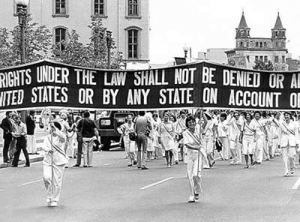Important Points Won Even as ACA Case Was Lost, Paul Clement Says
Paul Clement’s arguments did not carry the day when it came to the outcome a year ago of the historic United States Supreme Court decision on the constitutionality of the individual mandate in the federal Affordable Care Act, popularly known as Obamacare. But his arguments were supported by a majority of the justices on important points that will have an impact for years to come in Congress and in the judicial system, Clement said in delivering the Hallows Lecture 2013 in the Appellate Courtroom of Marquette University Law School’s Eckstein Hall this week.
Clement, formerly solicitor general of the United States, has argued 65 cases before the Supreme Court. He was the lead attorney in presenting arguments to the Court on behalf of 26 states that challenged the health care law. The Court heard a remarkable six hours of arguments focused on several major aspects of the challenge.
“The challenge for the challengers was to run the table to the tune of going 15 for 15” on legal points involved in the case, Clement said. “The good news is the challengers went 14 for 15. The bad news, from the perspective of my clients, is that 14 out 15 isn’t good enough. . . . Getting a really satisfying opinion from four justices still counts as a loss.”
The question at the heart of the case was whether there would continue to be a meaningful limit on the power of the federal government to impose laws such as the Affordable Care Act on the states, Clement said. He said, “I do think in some respects, the single most important takeaway from the decision was there were not five votes to say that there really is no meaningful judicial review of federalism constraints on Congress. There are constraints—again, the power is very substantial, very broad in the wake of the New Deal precedents of the Court, but it remains a limited power.”

